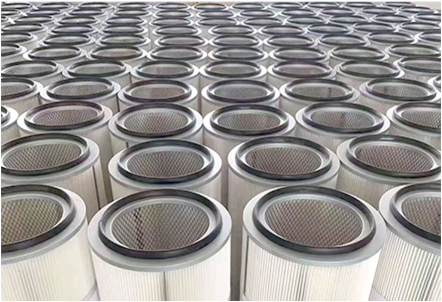 Tel:
+8618931101301
Tel:
+8618931101301
11月 . 07, 2024 12:42 Back to list
The Importance of Cartridge Oil Filters for Engine Performance and Longevity
Understanding Cartridge Oil Filters Essential Components for Vehicle Maintenance
When it comes to vehicle maintenance, one of the most crucial components that often gets overlooked is the oil filter, specifically the cartridge oil filter. This essential part plays a significant role in ensuring your engine runs smoothly and efficiently by removing contaminants from the engine oil. Understanding how cartridge oil filters work and their importance can help vehicle owners make informed decisions about their vehicle maintenance.
What is a Cartridge Oil Filter?
A cartridge oil filter is a type of oil filter used in many modern vehicles, featuring a replaceable filter element housed in a cylindrical cartridge. Unlike traditional spin-on oil filters, which have their own metal canister, cartridge filters typically consist of just the filter media and sealing components. This design allows for a more compact filter system, often leading to better filtration performance and environmental friendliness due to reduced waste.
The Mechanics Behind Cartridge Oil Filters
The primary function of any oil filter is to clean the engine oil. As the oil circulates through the engine, it picks up dirt, debris, and other contaminants. The cartridge oil filter uses a pleated filter media that traps these particles, ensuring that only clean oil returns to the engine. This process is crucial because clean oil lubricates engine components, reduces friction, and helps in maintaining optimal engine temperature.
Cartridge filters also typically incorporate a bypass valve. This valve opens if the filter becomes clogged, allowing oil to bypass the filter to prevent starvation of the engine. Though this feature is essential for engine protection, it is important to replace the filter on a regular basis to ensure that the oil is adequately cleaned.
Benefits of Using Cartridge Oil Filters
cartridge oil filter

1. Improved Filtration Efficiency Cartridge oil filters generally boast higher filtration efficiencies compared to traditional filters. Their design allows for a larger surface area, ensuring better trapping of contaminants.
2. Environmental Consciousness By using a filter that allows for the replacement of just the filter media rather than the entire canister, vehicle owners contribute to reduced waste. This is a more sustainable choice and aligns with growing environmental consciousness among consumers.
3. Cost-Effectiveness While the initial cost of a cartridge oil filter may be slightly higher, the long-term savings can be significant. Many cartridge filters allow for maintenance practices that minimize the overall cost of oil changes over time.
Maintenance and Replacement
Changing the cartridge oil filter is a straightforward process that can usually be done during regular oil changes. It's recommended to replace the oil filter at every oil change or according to the vehicle manufacturer's specifications. Failing to replace a clogged filter can lead to reduced engine performance and increased wear on engine components.
Tips for replacing a cartridge oil filter include ensuring that the engine is cool to avoid burns, properly disposing of used oil and filters in an environmentally safe manner, and applying a little fresh oil to the new filter’s gasket to ensure a proper seal.
Conclusion
In conclusion, the cartridge oil filter is a vital component in maintaining the health and performance of a vehicle's engine. Its ability to efficiently filter out contaminants, combined with its environmentally friendly design, makes it a popular choice among manufacturers and consumers alike. Regular maintenance and timely replacement of the cartridge oil filter can lead to enhanced engine protection, improved fuel efficiency, and a longer vehicle lifespan. For vehicle owners, understanding the importance of this component is key to ensuring their vehicle remains in top condition for years to come.
-
Working principle of high-efficiency dust filter elementNewsJun.26,2025
-
The truth about washable filters: Does repeated use really not affect efficiency?NewsJun.25,2025
-
Effect of humidity on the performance of activated carbon filter elementsNewsJun.24,2025
-
Material selection considerations for dust removal filter elements under high temperature conditionsNewsJun.23,2025
-
Cold knowledge of air filters: Why are some designed to be pleated?NewsJun.16,2025
-
Factory direct supply! High-precision air filter element wholesale and customizationNewsJun.12,2025

 Email:
Email:





